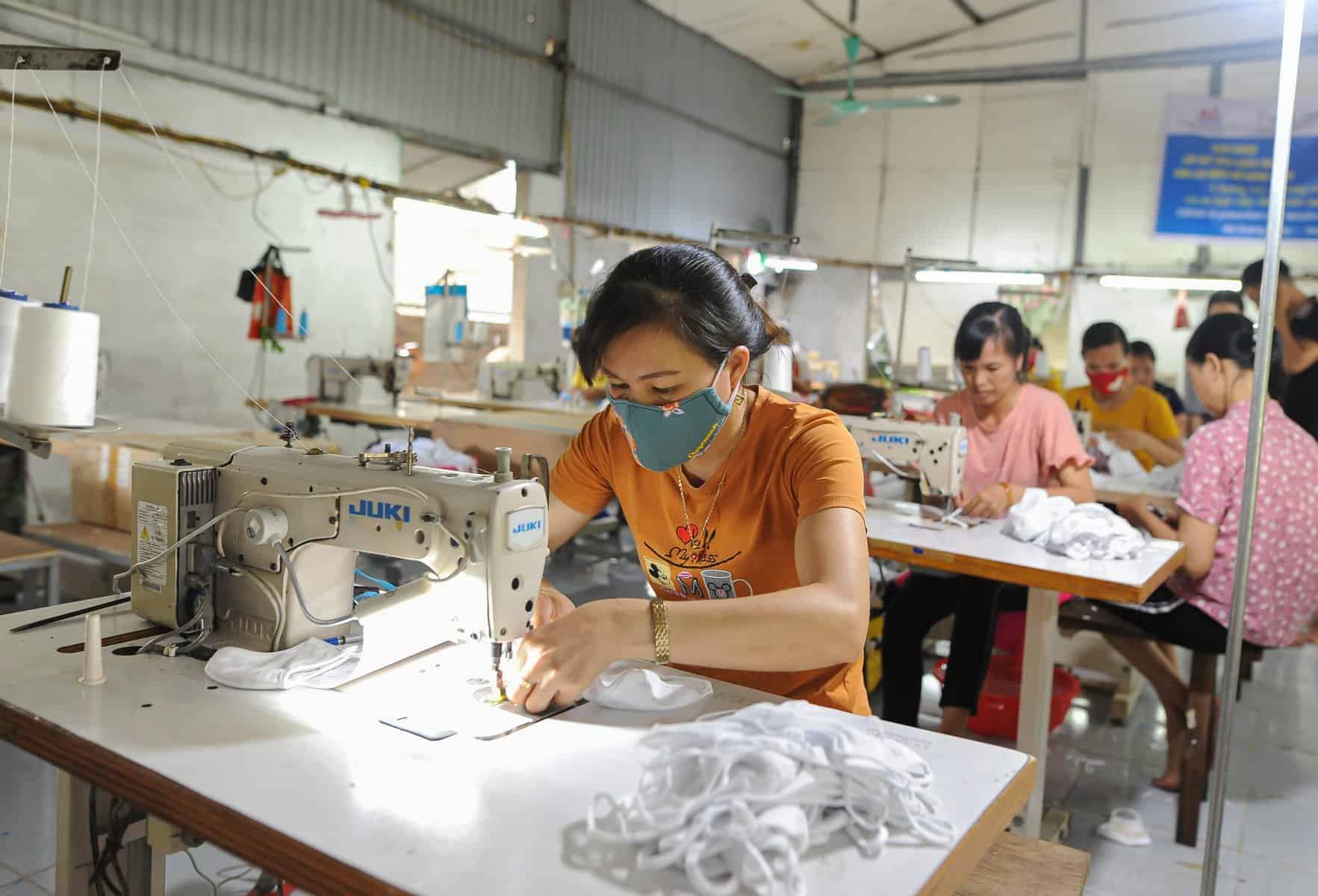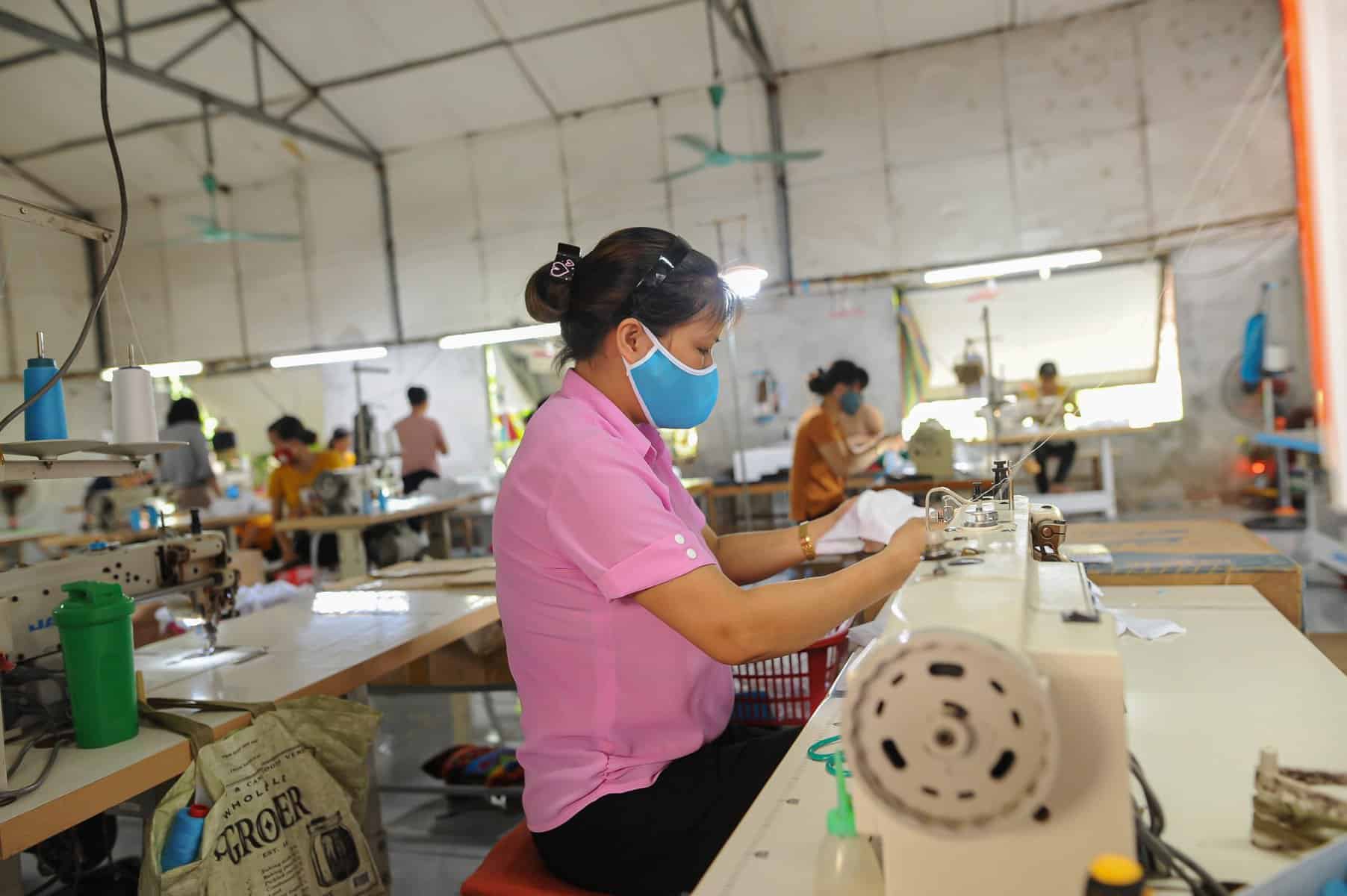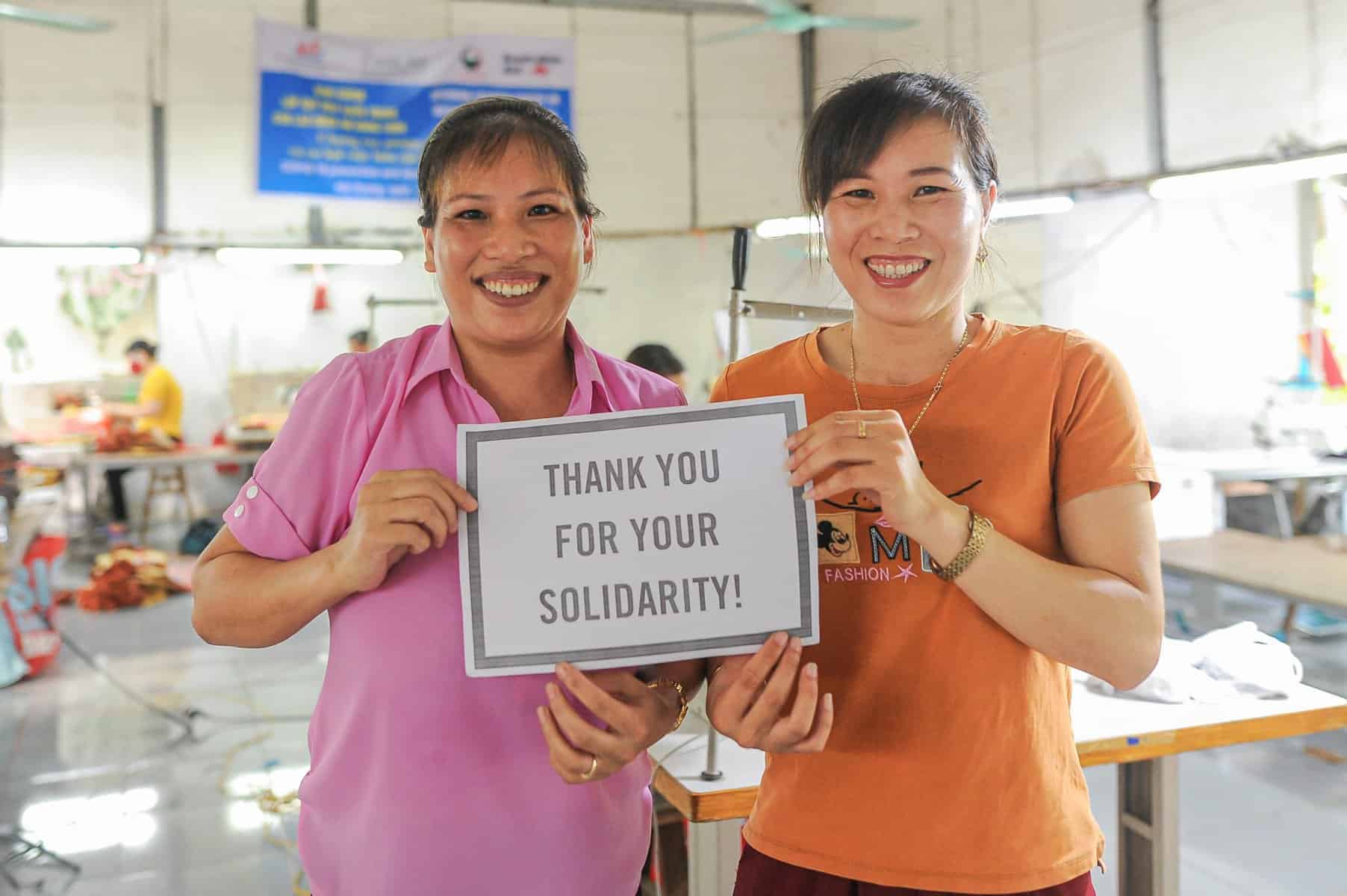The women making face-masks to support vulnerable communities in Vietnam
“My work has been interrupted a lot due to the COVID-19 virus, and jobs are hard to find, so my family’s economic situation is very difficult.”

Above: Le Thi Gam has been re-employed to make medical face-masks for vulnerable people.
Like at least three million workers in Vietnam, Le Thi Gam and her workmates were laid off as global supply chains were paralysed. While Vietnam is a world leader in controlling COVID-19, the economic shock threatens unprecedented labour cuts and is already pushing families into insecurity and poverty.
But through a partnership between Union Aid Abroad – APHEDA, Irish Aid, the 8th March Centre, and the Haiduong Women’s Union, Le Thi Gam and her workmates have been able to return to their factory to make protective face-masks.
By rapidly re-deploying our combined resources, Union Aid Abroad – APHEDA and its partner organisations have been able to secure contracts for the factory, train the workers in new skills, and distribute face-masks to vulnerable families.
The medical-grade face-masks that she and her forty workmates produce are already being distributed to 25,000 vulnerable and poor people in the rural province:
By rapidly re-deploying our combined resources, Union Aid Abroad – APHEDA and its partner organisations have been able to secure contracts for the factory, train the workers in new skills, and distribute face-masks to vulnerable families.
The medical-grade face-masks that she and her forty workmates produce are already being distributed to 25,000 vulnerable and poor people in the rural province:
“Making face masks is very important, because it helps poor people and the whole community. Helping each other in difficult times will bring people closer and closer.”
Another worker in the factory, Ngo Thi Hen, told us:
“I’m a tailor, and before the pandemic I thought that I could only earn money by tailoring. But through this pandemic I found myself contributing some energy to the prevention of the pandemic. I feel very excited!”

Above: Ngo Thi Hen has been re-employed to make face-masks for school children and people living with a disability.
“Staying safe at work during the pandemic is a priority. For example, when I’m at work, I must sterilize my hands, wear a face-mask, not gather in a crowd, and keep my distance from others.”
The Coronavirus pandemic is a health and economic crisis of unprecedented scale, but Le Thi Gam and Ngo Thi Hen know that by standing together in solidarity, we can protect both lives and jobs:
“Since the pandemic affects everyone around the globe, the Vietnamese people have joined hands with the world in solidarity, and Vietnam has effectively prevented the pandemic.”
